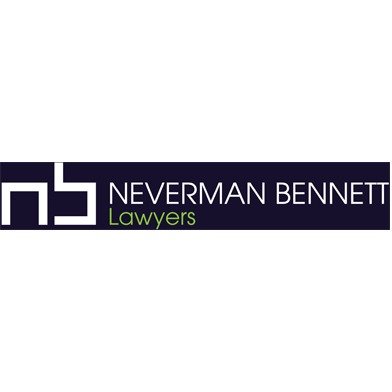Best Land Use & Zoning Lawyers in New Zealand
Share your needs with us, get contacted by law firms.
Free. Takes 2 min.
Free Guide to Hiring a Real Estate Lawyer
Or refine your search by selecting a city:
List of the best lawyers in New Zealand
About Land Use & Zoning Law in New Zealand
Land Use & Zoning laws in New Zealand govern the development and utilization of land across the country. These laws are primarily guided by the Resource Management Act 1991 (RMA), which seeks to promote sustainable management of natural and physical resources. Planning and zoning decisions are often made through district and regional plans developed by local councils. These plans outline permitted activities, zoning restrictions, and the processes for applying for resource consents if planned activities are not automatically allowed under existing zoning rules.
Why You May Need a Lawyer
Engaging a lawyer might be necessary for various reasons relating to Land Use & Zoning. Here are some common situations where legal help could be beneficial:
- Disputes with local authorities or neighbors over land use rights or zoning decisions.
- Applications for resource consents for developments that do not comply with current zoning regulations.
- Challenging or appealing a zoning decision made by a local council.
- Understanding how existing and new zoning laws affect property use or proposed developments.
- Advisory services for complex land use projects that require in-depth knowledge of RMA and local plans.
Local Laws Overview
The key aspects of local laws relevant to Land Use & Zoning in New Zealand include:
- Resource Management Act 1991 (RMA): The central legislation guiding land use, setting the framework for traffic impact, environmental protection, and community involvement.
- District and Regional Plans: These documents, created by local councils, designate zones for different types of land use, such as residential, commercial, industrial, or agricultural.
- Resource Consents: Required for any activity that is not permitted outright under the zoning regulations. Obtaining consent may involve an assessment of environmental effects and community impact.
- National Environmental Standards: Provide regulatory consistency across New Zealand for certain activities or risks with direct land use implications.
- Zoning Rules: Establish what activities and developments are permitted as of right or require resource consent within certain zones.
Frequently Asked Questions
What is a resource consent?
A resource consent is a formal approval required to undertake activities or developments that are not automatically permitted under local zoning rules. It ensures that such activities comply with environmental and planning regulations.
How do I find out what my property is zoned?
To determine the zoning designation of your property, consult the district plan provided by your local council. This information is typically available online or at the council office.
What should I do if I disagree with a zoning decision?
If you disagree with a zoning decision, you can lodge an objection or appeal it through the appropriate channels. This often involves engaging with council hearings or appealing to the Environment Court.
Can zoning laws change, and how would that affect my property?
Zoning laws can change through plan updates by local councils. Such changes may impact permissible uses of your property and future development opportunities.
What is the role of the Environment Court in zoning disputes?
The Environment Court adjudicates disputes related to environmental and planning issues, including zoning conflicts. It serves as a judicial authority to resolve conflicts arising from resource management decisions.
How long does it usually take to get a resource consent?
The timeframe for obtaining a resource consent varies depending on the complexity of the proposal and the council's processing capacity. Simple consents might be processed in a month, while more complex cases can take several months.
What are 'permitted activities' in zoning terms?
'Permitted activities' refer to uses of land or developments that comply with zoning laws and do not require resource consent. They are directly allowed by the district or regional plan.
Can restrictive zoning affect property values?
Yes, restrictive zoning can impact property values by limiting potential uses of the land, thus affecting its market appeal and the desirability of future developments.
How does zoning affect the subdivision of land?
Zoning regulations dictate the minimum lot size, infrastructure requirements, and intended land use, which affect how land can be subdivided. A resource consent may be required to subdivide land.
Who enforces zoning regulations?
Local councils are primarily responsible for enforcing zoning regulations. They ensure compliance with district and regional plans and monitor unauthorized activities.
Additional Resources
For those seeking further information or legal advice regarding Land Use & Zoning in New Zealand, the following resources may be helpful:
- Ministry for the Environment: Provides guidance on the Resource Management Act and its application.
- Local Councils: Each district or region has a council that provides zoning maps, plans, and consent application procedures.
- Environment Court: Offers resources for understanding court procedures related to zoning disputes.
- New Zealand Law Society: Can connect you with lawyers specialized in property and environmental law.
- Legal Aid Services: Offers assistance for those who qualify for legal aid in zoning-related matters.
Next Steps
If you require legal assistance in Land Use & Zoning, consider the following steps:
- Consult the district or regional plan for your area to understand zoning rules related to your property.
- Contact a lawyer specializing in environmental or property law for professional advice tailored to your situation.
- Gather all relevant documents, such as property titles, zoning maps, and correspondence with local authorities.
- Be prepared to engage in consultation or mediation with affected parties or local councils where necessary.
- Consider seeking alternative dispute resolution methods before proceeding with litigation.
Lawzana helps you find the best lawyers and law firms in New Zealand through a curated and pre-screened list of qualified legal professionals. Our platform offers rankings and detailed profiles of attorneys and law firms, allowing you to compare based on practice areas, including Land Use & Zoning, experience, and client feedback.
Each profile includes a description of the firm's areas of practice, client reviews, team members and partners, year of establishment, spoken languages, office locations, contact information, social media presence, and any published articles or resources. Most firms on our platform speak English and are experienced in both local and international legal matters.
Get a quote from top-rated law firms in New Zealand — quickly, securely, and without unnecessary hassle.
Disclaimer:
The information provided on this page is for general informational purposes only and does not constitute legal advice. While we strive to ensure the accuracy and relevance of the content, legal information may change over time, and interpretations of the law can vary. You should always consult with a qualified legal professional for advice specific to your situation.
We disclaim all liability for actions taken or not taken based on the content of this page. If you believe any information is incorrect or outdated, please contact us, and we will review and update it where appropriate.
Browse land use & zoning law firms by city in New Zealand
Refine your search by selecting a city.
















